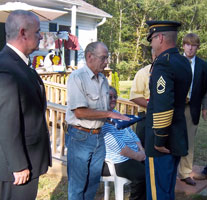It seems likely that parts of the federal government will close at midnight on Friday, December 21, 2018. Some departments and agencies have been approved for funding through September 30, 2019, but others have not. The offices at risk of closing down include the Departments of Agriculture, Housing and Urban Development, Commerce, Homeland Security, Interior, Justice, Transportation, Treasury and State, as well as the Environmental Protection Agency, Food and Drug Administration and Internal Revenue Service.
Official contingency plans for use if funding lapses are available online from USDA, HUD, and other agencies. Generally, federal staff in the affected agencies will not work and will not be paid unless their functions are considered “essential.” Employees are also not allowed to do their jobs voluntarily while they are furloughed. In the past, Congress and the President have usually agreed to pay furloughed employees retroactively after a shutdown ends, but they are not required to do so.
USDA Rural Development
The plan for USDA Rural Development explains that RD offices at the state level and below will be shut down completely if funding ends. Some functions located at the national office in Washington, D.C. and the servicing center in St. Louis will continue “for the purpose of preserving the Government’s property.” Government property is deemed to include RD’s loan portfolio, so some payments to and from RD financial systems will be processed. Loan escrow accounts will be serviced as well.
RD borrowers will not be able to make loan payments, however. Closings for direct loans will not take place. Applications will not be processed, and “no new RD rural housing loans or guarantees would be issued.” Borrowers already approved for Section 502 loan guarantees have the option to close their loans with their private lenders – at their own risk, because guarantees will not be issued until after the shutdown ends.
“System generated disbursements for previously obligated Rental Assistance funds will continue.” The contingency plan does not mention disbursements for Section 542 vouchers.
The contingency plan also notes that “if a shutdown occurred in December, RD borrowers would not receive critical information to file income tax returns.” The plan does not indicate how long it might take after a shutdown ends to send the needed tax information.
U.S. Department of Housing and Urban Development
HUD has posted an FAQ to accompany its contingency plan. Summaries are also available from several organizations:
· Affordable Housing Online
· Enterprise Community Partners
· LeadingAge
· National Association of Realtors




 HAC’s
HAC’s 
